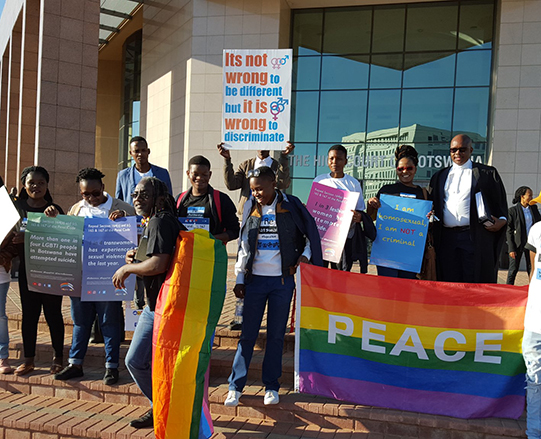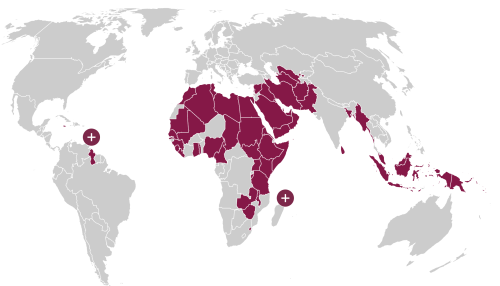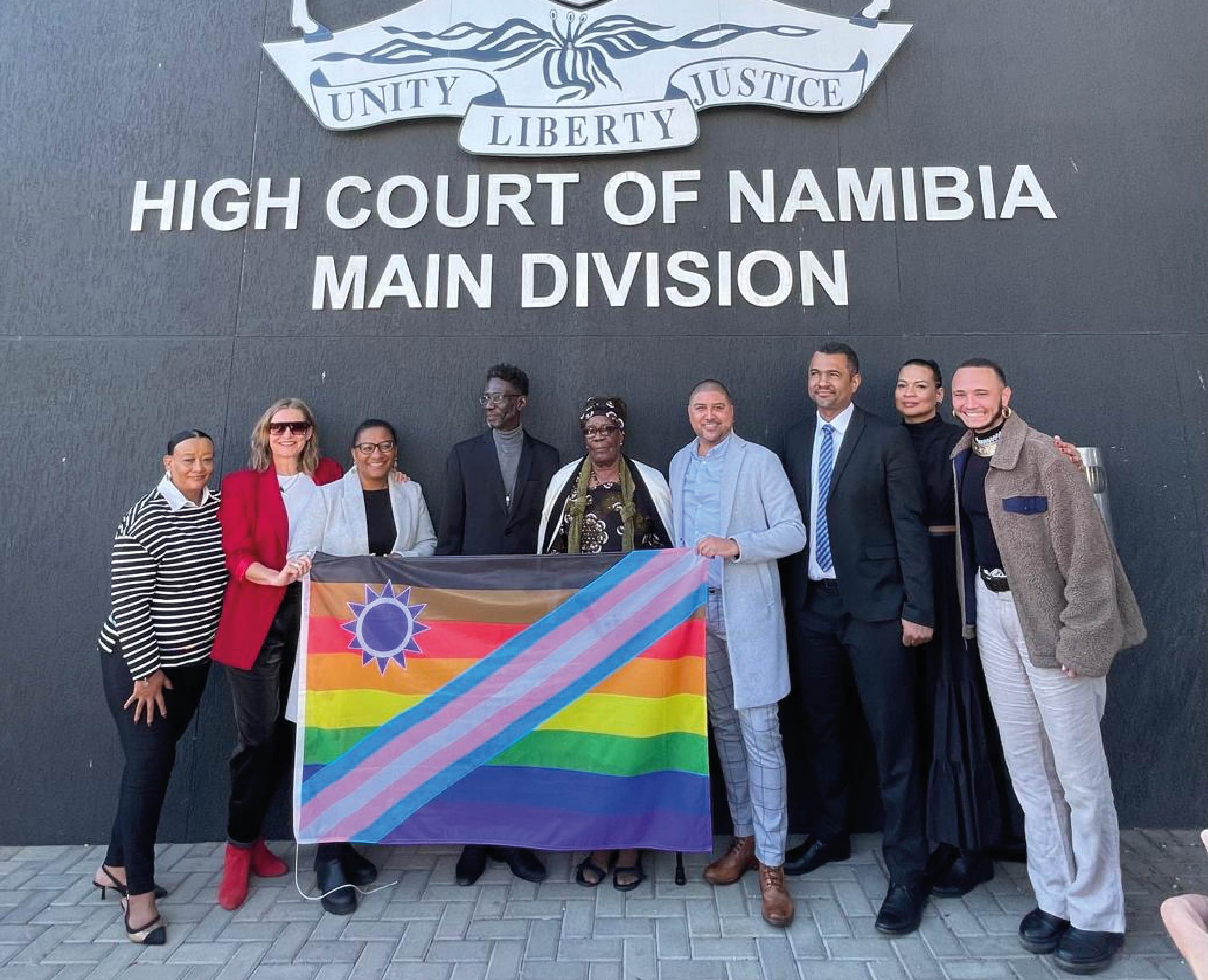(London, 29 November 2021) Today’s Court of Appeal decision in Botswana affirming a lower court’s decision to strike down antiquated laws criminalising consensual, same-sex sexual conduct is an enormous win for lesbian, gay, bisexual and transgender (LGBT) people in the southern African country and will echo across the continent, says the Human Dignity Trust.
The Court of Appeal in Botswana is the apex court, meaning that the ruling is final and the threat of arrest or imprisonment will no longer hang over the heads of LGBT people. The regional significance of the decision is also clear, says the Trust. Over 20 years after South Africa’s Constitutional Court decriminalised same-sex activity in 1998, this is now only the second final court decision on the continent to remove these colonial-era laws from the statute books.
‘The Trust congratulates the Botswanan and southern African LGBT human rights defenders and lawyers who have worked with such determination and tenacity on this crucial case. LGBT people in Botswana have waited for years to have their constitutional rights confirmed and can now be more certain of a future free from discrimination and violence,’ said Téa Braun, Chief Executive of the Human Dignity Trust.
LGBT people in Botswana have waited for years to have their constitutional rights confirmed and can now be more certain of a future free from discrimination and violence.
“Today is a momentous day in history, a victorious win in ascertaining liberty, privacy and dignity of LGBT people in Botswana. This judgement sets precedence for the world at large, it is a new dawn for better education and awareness on LGBT issues.”, says LEGABIBO CEO Thato Moruti. “I anticipate that more engagement with various arms of government will also set a trajectory towards a more inclusive and diverse nation.”
Sections 164 and 165 of Botswana’s British colonial-era Penal Code outlawed ‘carnal knowledge of any person against the order of nature,’ attempts to commit the offence, respectively. Those convicted under these laws faced jail sentences of up to seven years.
A court case from 2003, in which it was argued that these sections of the Penal Code were unconstitutional, was dismissed by the Court of Appeal, so today’s victory, which affirms a 2019 win at the High Court, is especially welcome as it finally aligns Botswana’s criminal laws with both the country’s 1966 Constitution and international human rights law, says the Trust.
Today’s victory at the Court of Appeal was particularly notable given the generally hostile climate towards the human rights of LGBT people across Africa. Of the continent’s 54 countries, 32 continue to criminalise homosexuality, and 13 of those are members of the Commonwealth.
In addition to legal change in favour of LGBT people through the courts, several African countries have made bold and encouraging steps to decriminalise via their legislatures in recent decades. These are Angola, Cape Verde, Gabon, Guinea Bissau, Lesotho, Mozambique, Sao Tome and Principe and Seychelles.
Notes to editors
- The Human Dignity Trust works with LGBT activists around the world to defend human rights in countries where private consensual sexual activity between people of the same sex is criminalised.
- Visit our interactive map to see which countries across the world still criminalise same-sex activity.
- Botswanan LGBT rights organisation, The Lesbians, Gays & Bisexuals of Botswana was admitted as amicus curiae (friend of the court) in this case, and was supported by the Southern Africa Litigation Centre.
For more information contact:
Emma Eastwood, Head of Strategic Communications, HDT
T: +44 (0)20 7419 3770 / E: [email protected] / Twitter: @HumanDignityT



